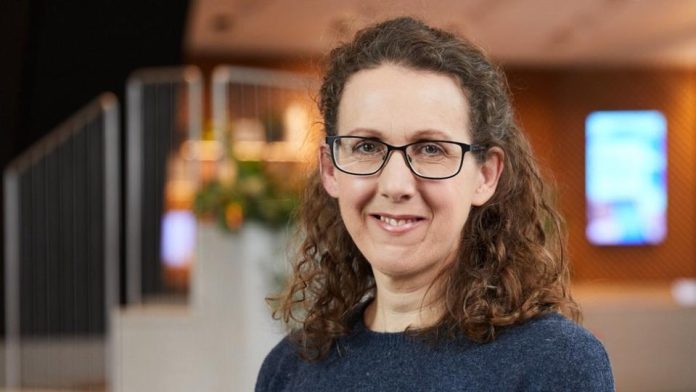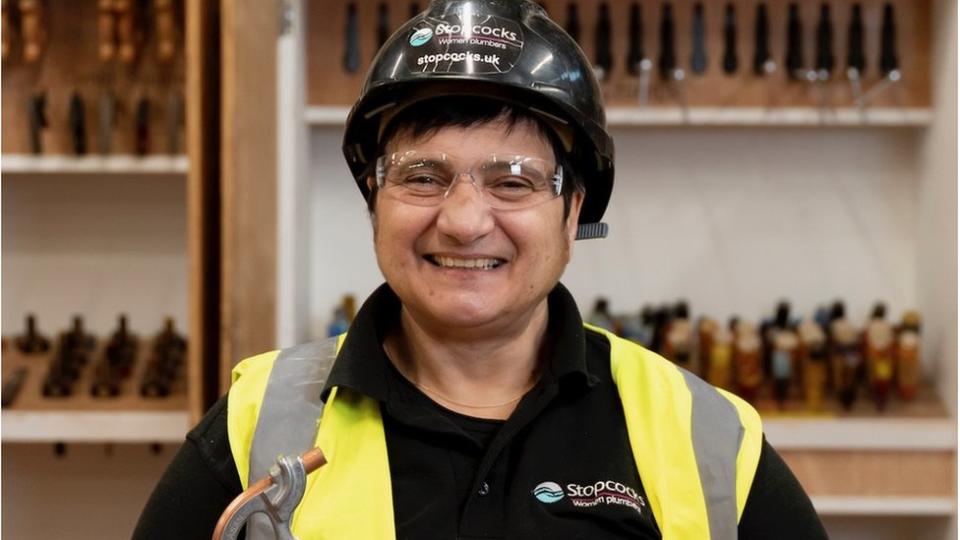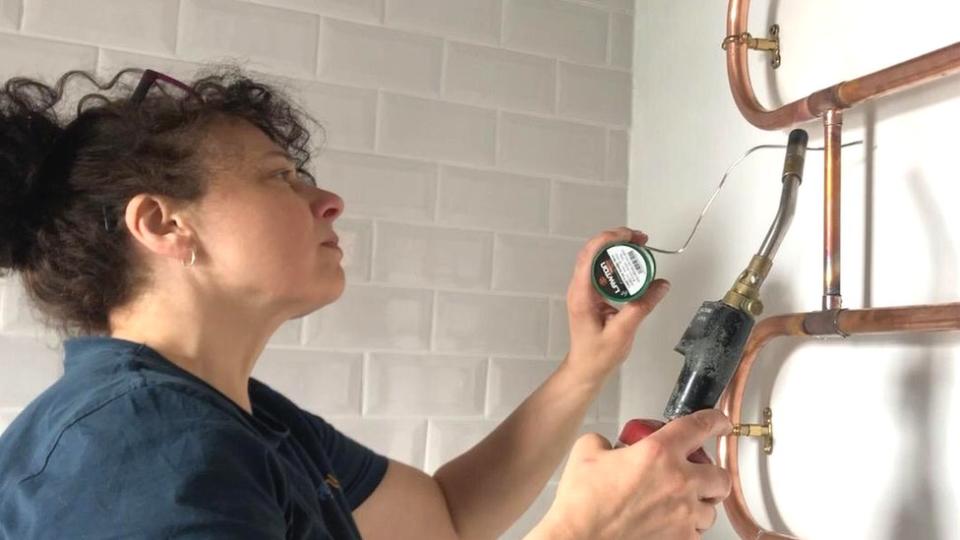Leah Robson challenges the notion that women can’t be plumbers
Leah Robson was busy installing the heating in her client’s house. The customer in question moved in, a single man with his own apartment.
Every so often someone who worked for the moving company would walk past Robson while she was toiling and ask, “Where do you want that then?”
She had to explain three times: “It’s not my house, I’m not married to the man who’s moving in, I’m just fixing the heating.”
Today, Ms. Robson runs Your Energy Your Way, a company specializing in renewable energy, heat pumps, plumbing and related services. She and other women in the industry argue that the workforce in many construction jobs should be much more diverse by 2023 — and far too many people still assume that a woman can’t be a plumber.
According to the Office of National Statistics (ONS), the proportion of female plumbers is low, although the ONS estimates their number has increased from 2,700 (1.9%) in 2021 to 3,500 (2.4%) in 2022.
“Even 2.4% is unfortunate, isn’t it?” says Ms Robson. The proportion of women is similarly high in other construction occupations.
The ONS points out that its data are only estimates and are based on extrapolated results from a national survey. Among the respondents were also people who described themselves as plumbers or heating engineers.
A government report released in January suggested that 5% of employees at 687 heating and cooling companies were women, but the report found: “The sector may be a little less diverse than these numbers suggest.”
The Scottish and Northern Ireland Plumbing Employers’ Confederation (SNIPEF) has stated that it is aiming for 10% of all apprentices in the profession to be women.
Hattie Hason started her own plumbing business
“I’ve worked for 17 years without meeting another woman. Then I started looking for them,” says Hattie Hasan, founder of Stopcocks Women Plumbers, a plumbing company.
She and Ms Robson point to the value of social media in connecting women in the industry across the country – from Facebook groups to TikTok – as well as at in-person events like those hosted by Stopcocks. The company also has a register of 750 craftswomen in the UK, including 100 plumbers.
The story goes on
Employers sometimes assume that including women in their advertising or claiming equal opportunities is enough, but that’s not the case, Ms Hasan argues.
To actually attract women to a job, sanitation companies should consider how they can address their needs—from menopause support to flexible working for single parents, to separate toilets and personal protective equipment that fits women properly and protects them from dust and dirt other hazards protects work.
“Some women we spoke to were told they had to buy their own clothes because it was more expensive for the company to buy them for them,” says Ms Hasan.
Currently, working as a plumber might be a little easier for women if they are self-employed, Ms Hasan suggests, as it allows them to manage various other commitments on their own terms alongside the work. She points out that years ago she was forced to start her own business as a trader, although she approached several companies looking for work.
Sovay Berriman says many clients are happy to see a female plumber
Sovay Berriman is a self-employed plumber based in Cornwall. She uses the company name ‘Plumbmaid’, which she explains is not about being a maid in the submissive sense, but rather a nod to Cornish slang, where the term ‘any maid’ is a colloquial way, praising a woman to be of particular importance.
“A lot of male customers also find it a relief,” she says, to be a woman in the industry. “They just say, ‘Oh, great!’ – You don’t have to be a guy.
While some are very supportive of her, like Ms Robson, Sovay Berriman has struggled with her prejudices and says the industry needs to work to challenge the assumption that artisans are inherently men.
She adds that she would be cautious about attributing certain characteristics to men or women in the industry to avoid perpetuating stereotypes. For example, it is not the case that all women are better at communicating than men.
More business technology:
However, she does point out that she feels her own abilities have served her well. “I’ve found that clients are open to the way I explain things,” she says.
“I don’t know if that’s because of my gender, but I think maybe that’s something that’s more ingrained in society — which women are good at.” [communication].”
Given the shortage of plumbers and heating contractors in the UK, the white male dominated industry is a real problem – which by definition means there is a huge resource of “untapped talent” out there, says Viven Kizilcec, consumer research manager at Energy Systems Catapult, a government-funded research group.
Today, plumbing and heating jobs are high-tech jobs that require knowledge of smart controls, renewable energy systems, and efficient appliances.
If more people were aware, a larger and more diverse cohort could take on the job, she suggests: “You get a much broader range of skills with these new green technologies.”
Parental encouragement can make a big difference, notes Aimee Holloran, business development manager at Samsung Electronics. She specializes in advising customers on heat pumps, but started out as an apprentice plumber. Her father made her do everything possible that boys usually do, she says, including riding motorbikes. And her mother suggested an apprenticeship as a plumber.
Some companies set targets to improve gender equality. For example, LiveWest, a housing association in south-west England, has taken on seven female apprentices in various trades over the last year. 21 of the 471 craftsmen are now women.
Earlier this year, the Chartered Institute of Plumbing and Heating Engineering (CIPHE) published advice for employers on publicizing their diversity goals, creating diverse interview rounds when hiring and using inclusive language. Avoid obviously discriminatory terms that are still used in job advertisements, such as “craftsman”.
“There’s definitely still a long way to go” when it comes to gender equality, says Kevin Wellman, Managing Director of CIPHE.
Ms Hasan agrees – and makes one final point. Women can bring new and improved approaches to sanitation that go beyond simply expanding the workforce. She suggests people should stop wondering if women can only be “as good” as a man.
“Since when is the way men do things the high bar we all need to reach?” she says with a laugh.
finance.yahoo.com
https://finance.yahoo.com/news/women-tackling-woeful-diversity-plumbing-230555723.html

















